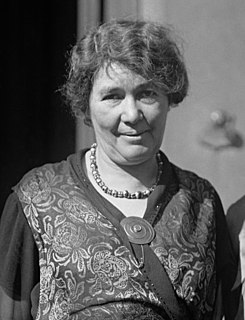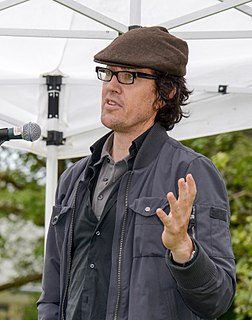A Quote by Charlie Brooker
My wife made me watch this documentary about the Iraq War, and there was a really powerful moment where they followed some civilian whose family had been killed. This was 5 or 10 minutes of this woman talking, and it was extremely arresting. You realize how you never hear from the person on the receiving end of a war without a reporter stepping in to compartmentalize the story. Usually they're just a few shots at the end of a news report, wailing and screaming at a funeral.
Quote Topics
About
Arresting
Been
Civilian
Documentary
End
Extremely
Family
Few
Followed
Funeral
Had
Hear
How
Iraq
Iraq War
Just
Made
Me
Minutes
Moment
My Wife
Never
News
Person
Powerful
Realize
Really
Really Powerful
Receiving
Report
Reporter
Screaming
Shots
Some
Stepping
Story
Talking
Wailing
War
Watch
Whose
Wife
Without
Woman
Related Quotes
By the time of Andi Parhamovich death, I had already grown skeptical of the Iraq war. What her death made me realize was what the actual price was. Going through that kind of loss and seeing how devastating it was on her family and friends made me decide that I was only going to write about things that I really believed in. I'm not going to compromise on that.
In my head, thought, I would love to do an interview where it's just sort of de-constructed - the talking points of Iraq - sort of the idea of, is this really the conversation we're having about this war? That if we don't defeat Al Qaeda in Iraq, they'll follow us home? That to support the troops means not to question that the surge could work. That, what we're really seeing in Iraq is not a terrible war, but in fact, just the media's portrayal of it.
To me, you can't win. You can't win. There's a war in Iraq; there's no way that they're ending that. The war in Afghanistan is still going on. There's no way that's going to end anytime soon. You can complain about it, you can throw rocks at it, but you really have to come to the conclusion that this is a really twisted place sometimes and some stuff you're not going to win.
Dachau has been my own lifelong point of no return. Between the moment when I walked through the gate of that prison, with its infamous motto, 'Arbeit Macht Frei,' and when I walked out at the end of a day that had no ordinary scale of hours, I was changed, and how I looked at the human condition, the world we live in, changed ... Years of war had taught me a great deal, but war was nothing like Dachau. Compared to Dachau, war was clean.
One of the reasons it's important for me to write about war is I really think that the concept of war, the specifics of war, the nature of war, the ethical ambiguities of war, are introduced too late to children. I think they can hear them, understand them, know about them, at a much younger age without being scared to death by the stories.
People say, "I'm tired of hearing about the war in Iraq. I'm tired of hearing about it." And it makes me realize how few people have deeper connections with it, as far as knowing people who have come back paralyzed or who have died, or families that have been affected . . . If they had a connection to it, then they wouldn't be tired of hearing about it.
A few years ago, I was trying to buy a piece of land next to a house I had in Newfoundland. I discovered that the plot had been owned by a family, and the son had gone off to World War I and been killed. It began to interest me: What would have happened on that land if the son had lived, had brought up his own family there?
Throughout history civilian populations and political rulers have talked of peace. We have never been free of war. The soldier, whose profession is war, understands that peace must be enforced by superior military might. The certainty of defeat is the only effective deterrent we can use to maintain peace. Furthermore, we can be strong without being aggressive.
And in the end, of course, a true war story is never about war. It's about sunlight. It's about the special way that dawn spreads out on a river when you know you must cross the river and march into the mountains and do things you are afraid to do. It's about love and memory. It's about sorrow. It's about sisters who never write back and people who never listen.



































